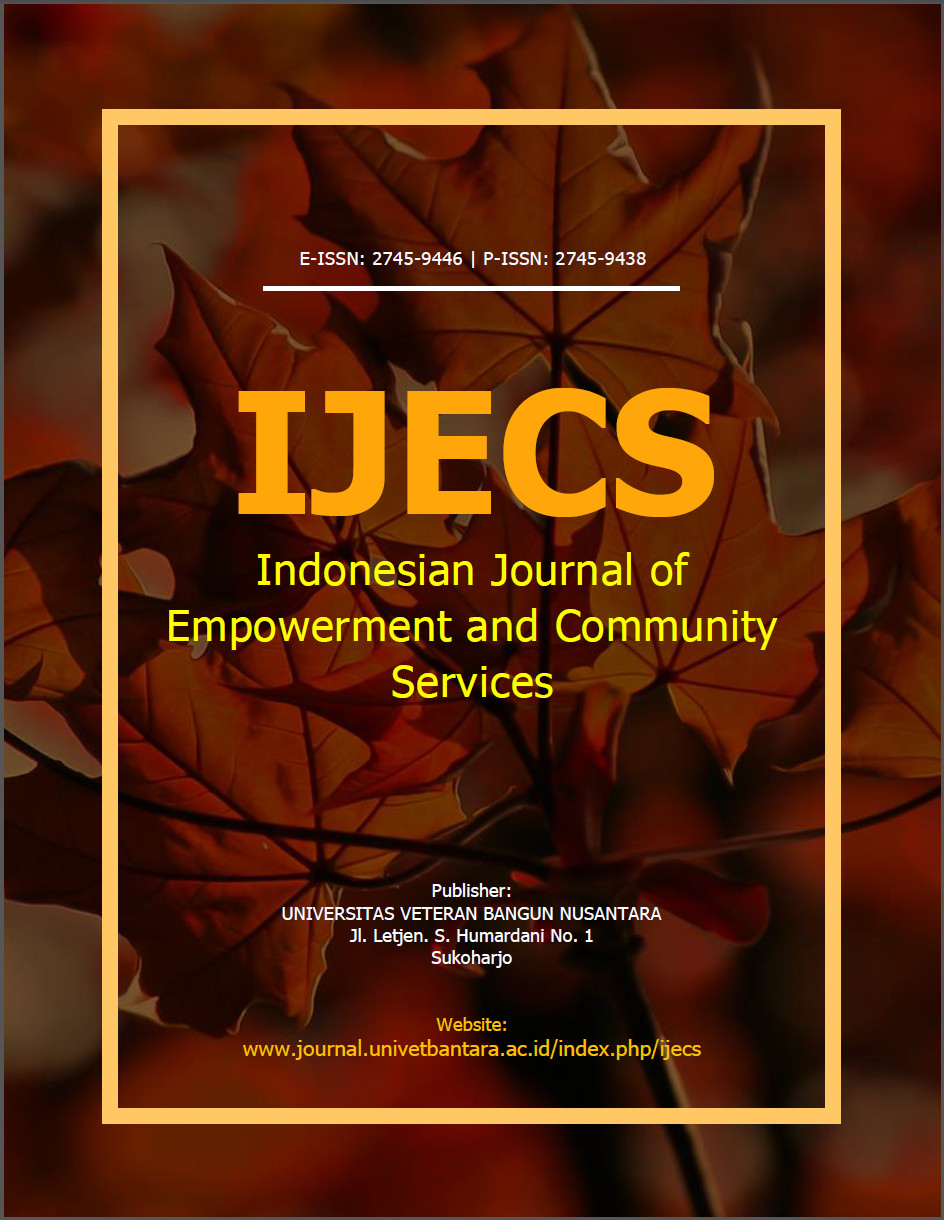Assistance in Handling Ergonomic Work Hazard Factors to Prevent MSDs in Informal Workers
DOI:
https://doi.org/10.32585/ijecs.v6i1.6320Abstract
Informal labour in the world is 57.8% according to ILO data in 2024. Indonesia has 59.11% proportion of informal employment in 2024 according to the Central Bureau of Statistics. Informal workers have hazardous factors that have not been identified and can cause injuries or occupational diseases. Informal cake-making workers who work 8 hours a day are potentially exposed to ergonomic hazards, fire hazards from cake baking and other occupational hazards. The purpose of this service is to provide knowledge and handling of occupational hazards in informal workers. The method of implementing community service is a field survey to identify hazards and risk assessments, conduct Strength, Weakness, Opportunity Treath (SWOT) analysis, Counselling and Poster Making. Community service produces data on the identification of occupational hazards and risk assessments of informal workers making cakes, ergonomics counselling materials and posters of safe work positions. Informal workers in the cake Home Industry have potential hazards of hand injury by machinery, potential fire hazards and potential hazards of skeletal muscle disorders in the form of Low back pain and Carpal Tunnel Syndrom. Knowledge of cake home industry workers regarding manual lifting and skeletal muscle disorders in workers has increased.
Keywords: informal workers, ergonomics, poster
Downloads
Downloads
Published
How to Cite
Issue
Section
License
Copyright (c) 2025 Maria Paskanita, Farhana Syahrotun Nisa Suratna, Alifah Muti Husna, Berliana Ardhia , Eka Ayu Putri Kinasih; Mario Wibisono , Mia Sulastri; Novita Dwi Romadhona ; Nur Arifin; Raihana Dzakiyatunisa; Revan Wahyu Ardhana; Suci Rahmatulah

This work is licensed under a Creative Commons Attribution-ShareAlike 4.0 International License.
Authors who publish with the IJECS: Indonesian Journal of Empowerment and Community Services agree to the following terms:
- Authors retain copyright and grant the journal the right of first publication with the work simultaneously licensed under a Creative Commons Attribution License (CC BY-SA 4.0) that allows others to share the work with an acknowledgment of the work's authorship and initial publication in this journal.
- Authors are able to enter into separate, additional contractual arrangements for the non-exclusive distribution of the journal's published version of the work (e.g., post it to an institutional repository or publish it in a book), with an acknowledgment of its initial publication in this journal.
- Authors are permitted and encouraged to post their work online (e.g., in institutional repositories or on their website) prior to and during the submission process, as it can lead to productive exchanges, as well as earlier and greater citation of published work.





